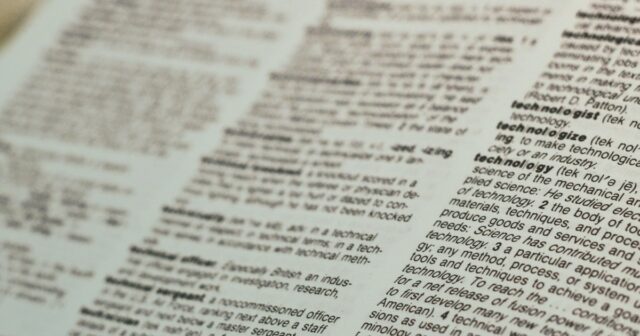Vocabulary Tips
An archive of posts covering vocabulary tips and word choice. Find out more about the common linguistic errors. Check out our editing advice to make sure you can proofread and edit documents effectively.

The Ultimate Glossary of Freelance Writing Terms
The Ultimate Glossary of Freelance Writing Terms
Dec 06, 2023
If you’re starting as a freelance writer, you might need clarification on the many writing terms used in the industry. That’s why we’ve put together this ultimate glossary of freelance writing terms. In this blog post, we’ll cover everything you need to know to become familiar with the most common terms used in the freelance […]

How to Use Google Ngram Viewer While Proofreading
How to Use Google Ngram Viewer While Proofreading
Nov 07, 2023
Google offers many tools that a proofreader or editor can use. One of the most underappreciated is the Google Books Ngram Viewer, which you can use to see how common certain words are. So, how does the Ngram Viewer work? And how can you use it while proofreading and editing? What Is an N-gram? An […]

Native Speaker vs. Fluent Speaker: Which Term Is Best?
Apr 03, 2023
The Chartered Institute of Editing and Proofreading recently announced that it’s asking its writers to stop using the terms “native” or “non-native” when referring to language speakers – and is instead advising that they use “fluent” or “non-fluent.” At Knowadays, we’ve opted to do the same and will no longer use these phrases in our […]

What Is Copy Editing?
Feb 25, 2023
Copy editing is an important part of the editing process. But what does it actually mean and involve? In this post, we’ll answer these questions and show you how you can start your copy-editing career. What Is Copy Editing? Copy editing refers to the act of correcting errors in a piece of writing or copy. […]

What Is Developmental Editing?
Jan 30, 2023
Before a manuscript is published, it goes through several stages of editing, and traditionally, each step is conducted separately. Developmental editing (also known as structural editing) is the essential first step that concerns the overall structure and content of a text. Keep reading to learn more about what’s involved in developmental editing and how it […]

What Is Antiquated Language? (And How to Proofread It)
Dec 14, 2022
As people change and advance, so does language. English is no exception to that; some of its words stand the test of time, while others fall from favor and are replaced by new words. In today’s blog post, we’ll shed some light on antiquated language in English and how to proofread it. What Is Antiquated […]

Literally and Figuratively: What’s the Difference?
Nov 16, 2022
The English language’s waters can be muddy. So too can the difference between this pair of words: literally and figuratively. Literally and figuratively aren’t the same thing, despite what some people may think. Literally used to denote a literal, or letter-by-letter, meaning. People didn’t start to use literally in a figurative sense until about 200 […]

The Ultimate Glossary of Proofreading and Editing Terms
May 20, 2022
Every new skill brings with it a host of new terminology. For disciplines as complex and varied as proofreading and editing, the terminology can sometimes be overwhelming. But fear not! In today’s post, we present to you The Ultimate Glossary of Proofreading and Editing Terms. Why Is a Proofreading and Editing Glossary Helpful? Correct terminology […]

Proofreading and Plain English
Proofreading and Plain English
Jun 03, 2021
Using plain English is a key skill in modern communications. But what does plain English involve? And what does a proofreader need to know about it? In this post, we explain the basics of plain English for proofreaders. What Is Plain English? In layman’s terms, plain English means… well, layman’s terms. It refers to using […]

Editing Tips: What Is Alphabet Soup?
Editing Tips: What Is Alphabet Soup?
Apr 18, 2021
A dedicated proofreader will have an appetite for all kinds of text. But if there’s one literary meal that no editor or proofreader likes to see, it’s alphabet soup. What is alphabet soup in a writing context, though? And why is it a problem? In this post, we explain the basics and what to do […]